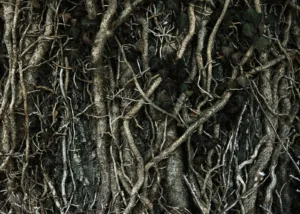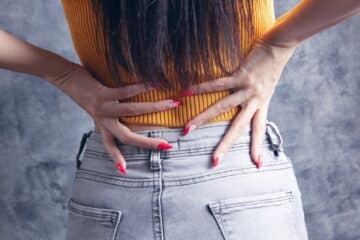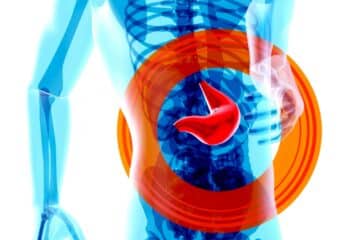Hello, dear readers! If you caught my last post on the Hun – that ethereal soul that’s all about dreams, creativity, and wandering like a free-spirited nomad – you’ll be thrilled to dive into this follow-up. Today, we’re shining the spotlight on the Shen, the radiant spirit that lights up our consciousness and keeps our minds sharp. Think of the Shen as the CEO of your inner world: it calls the shots on emotions, thoughts, and that sparkle in your eyes. We’ll explore its rich history, how it influences point and herb selection in acupuncture and herbalism, simple at-home tricks to pamper your Shen, and how it teams up with the Hun for ultimate harmony. Let’s get spirited!
A Brief History of Shen in Chinese Medicine
The concept of Shen has been a cornerstone of Chinese philosophy and medicine for millennia, weaving through texts and practices like a golden thread. Dating back to the Neolithic era, early shamans and healers recognized Shen as the vital essence that animates life, often depicted as a divine spark or luster in the eyes. In ancient Chinese folk religion, Shen referred to the human spirit or psyche, embodying vigor in the body and enthusiasm in the mind. It’s no wonder the legendary Emperor Shennong 神農, venerated as the “Father of Chinese Medicine” around 2800 BCE, plays a starring role here. Known as the Divine Farmer, he tasted hundreds of herbs to discover their properties, laying the foundation for herbal medicine and even introducing acupuncture techniques. His classic, the Shen Nong Ben Cao Jing (Divine Farmer’s Materia Medica), categorizes herbs and emphasizes how they nourish the Shen to promote longevity and mental clarity.
Fast forward to the Han Dynasty (206 BCE–220 CE), and Shen takes center stage in foundational texts like the Huang Di Nei Jing (Yellow Emperor’s Inner Classic), where it’s described as residing in the Heart and governing consciousness. The Shang Han Lun (Treatise on Cold Damage), penned by Zhang Zhongjing around 200 CE, builds on this by addressing how external pathogens can disrupt the Shen, leading to symptoms like delirium or restlessness. Zhang often quotes the Nei Jing to underscore Shen’s role: “The Heart is the sovereign of all organs and represents the consciousness of one’s being. It is responsible for intelligence, wisdom, and spiritual transformation.” This integration highlights Shen’s evolution from a mystical force to a clinical entity in Traditional Chinese Medicine (TCM), influencing diagnostics and treatments for emotional and mental imbalances.
Throughout history, Shen has symbolized the interplay between heaven and earth – the yang aspect of the soul that’s outward-facing and luminous. By the Tang and Song Dynasties, Neo-Confucian thinkers like Zhu Xi further refined these ideas, linking Shen to moral cultivation and harmony. Today, in modern TCM, Shen disturbances manifest as anxiety, insomnia, or foggy thinking, reminding us that this ancient concept is as relevant as ever. As a funny saying goes, “A strong Shen is like a well-brewed tea – warm, invigorating, and full of depth. A weak one? Just lukewarm water with a sad teabag floating around!”
The Role of Shen in Chinese Medicine
In TCM, Shen is one of the “Three Treasures” – Jing (essence), Qi (energy), and Shen (spirit) – and it’s housed in the Heart, the emperor of organs. Shen governs the mind, emotions, and awareness, manifesting as that “light behind the eyes” or presence that makes someone truly alive. When Shen is balanced, you’re clear-headed, emotionally stable, and socially engaging. But when it’s disturbed – say, by stress, overwork, or poor diet – you might experience insomnia, palpitations, forgetfulness, or even manic episodes. TCM views Shen as dependent on strong Blood and Qi; deficient Blood fails to anchor it, while Heat can agitate it, leading to chaos.
Point selection and herb choices in acupuncture and herbalism revolve around calming, nourishing, or anchoring the Shen. Acupuncturists target Heart-related meridians to restore harmony, while herbalists prescribe tonics to replenish what’s lacking. It’s all about holistic balance – treating the root, not just the symptoms.
“If your Shen is scattered, you’re like a smartphone with too many tabs open – lagging and ready to crash!”
Acupuncture Points and Herbs for Shen-Related Issues
When dealing with Shen imbalances, acupuncturists have a toolkit of points named after the spirit itself, designed to soothe and stabilize. For instance, HT-7 (Shenmen, or “Spirit Gate”) is a go-to for calming the mind, nourishing Heart Blood, and easing anxiety or insomnia. Located on the wrist, it’s like a direct line to your inner peace. Other favorites include GV-24 (Shenting, “Spirit Courtyard”) on the forehead for clearing mental fog and promoting insight; GV-11 (Shendao, “Spirit Path”) on the back to strengthen Heart Qi; and BL-44 (Shentang, “Spirit Hall”) to resolve phlegm obstructing the Shen, often used for emotional blockages.
Additional points like PC-6 (Neiguan) help with palpitations and emotional agitation, while SP-6 (Sanyinjiao) nourishes Blood to anchor Shen. GV-20 (Baihui) lifts the spirit for depression, and ST-36 (Zusanli) boosts overall Qi to support mental vitality. In practice, a session might combine these with a tdp lamp for warmth or tacks for ongoing stimulation.

Photo by Camille Brodard on Unsplash
On the herbal front, tonics are stars for nourishing Shen. Ginseng (Ren Shen) is a classic, calming the spirit while replenishing deficiencies – Zhang Zhongjing in the Shang Han Lun praises it for treating exhaustion where “the spirit is weary and the pulse is faint.” Reishi mushroom (Ling Zhi) settles the Shen, promoting longevity and mental clarity. Polygala (Yuan Zhi) opens the Heart orifices, expelling phlegm that clouds the mind, ideal for forgetfulness.
Albizzia bark (He Huan Pi) and flower (He Huan Hua) are mood-lifters, resolving Liver Qi stagnation that affects Shen. Suan Zao Ren (Sour Jujube Seed) nourishes Heart Yin and calms restlessness, often in formulas like Suan Zao Ren Tang. Schisandra (Wu Wei Zi) and Goji berries (Gou Qi Zi) tonify Kidney Essence to support Shen indirectly. A popular formula is Ren Shen Yang Ying Tang (Ginseng Decoction to Nourish the Nutritive Qi), which tonifies Qi and Blood to stabilize Shen, especially for post-illness weakness.
Herbalists customize blends based on patterns – for Heat-agitated Shen, add cooling herbs like Long Dan Cao; for deficiency, warming tonics. Remember, consult a professional, as these aren’t one-size-fits-all.
“Taking herbs for your Shen is like giving your spirit a spa day – pamper it, or it’ll throw a tantrum!”
Things Patients Can Do at Home to Help Their Shen
You don’t need a clinic visit to nurture your Shen – everyday practices can make a big difference. Start with mindfulness meditation: Sit quietly for 10-15 minutes daily, focusing on your breath to anchor the Shen and reduce mental chatter. Qi Gong exercises, like the “Inner Smile” technique, direct positive energy to the Heart, fostering calm.

Photo by Ian Stauffer on Unsplash
Diet plays a huge role; opt for Shen-nourishing foods like oats, whole wheat, leafy greens, eggs, and iron-rich items to build Blood. Sip herbal teas with licorice root, wheat berries, and Chinese dates – a simple brew that harmonizes Qi and calms the mind. Avoid caffeine and spicy foods that overstimulate.
Self-acupressure on points like HT-7 or the ear’s Shenmen point (upper ear shell) can ease anxiety; press gently for 1-2 minutes. Journaling helps process emotions, aligning with Hun-Shen synergy. Get ample sleep in a dark, quiet room to let Shen rest. Nature walks ground you, as does limiting screen time to prevent “Shen scatter.”
Incorporate rituals like burning calming incense or listening to soothing music.
“To boost your Shen at home, try dancing like no one’s watching – unless your cat is judging, then invite it to join!”
How the Hun and Shen Work Together for Health
The Hun (ethereal soul) and Shen (spirit) are dynamic duo in TCM’s psyche model. Housed in the Liver, the Hun provides movement – dreams, ideas, creativity – while the Heart’s Shen offers control and integration. The Hun “follows the Shen,” meaning Shen directs Hun’s wanderings for purposeful action. Without Hun’s input, Shen becomes inert, leading to depression; unchecked Hun causes mania.
This interplay fosters empathy, planning, and emotional depth. For health, balanced Liver Qi ensures Hun’s smooth flow, supporting Shen’s clarity. Imbalances? Liver stagnation agitates Shen, causing irritability. Treatments like needling GB-40 stimulate Hun for motivation, while LIV-3 restrains it. As Giovanni Maciocia notes, “The Hun assists the Shen in mental activities by providing intuition, vision, and inspiration.” Together, they create a harmonious mind-body-spirit connection.
“Hun and Shen team up like coffee and cream – one adds the kick, the other smooths it out. Without both, it’s just bitter!”
Conclusion and Teaser
Wrapping up, the Shen is your inner light – nurture it through history-honored practices, and watch your vitality soar. From ancient emperors to modern clinics, its wisdom endures. As the Shang Han Lun reminds us in its holistic approach: “Look at a disease and know its origin,” urging us to see beyond symptoms to the spirit.
Stay tuned for our upcoming blog post on the Po, the corporeal soul that anchors us to the physical world and plays a crucial role in immunity and instinctual health. It’ll complete our soul trilogy – don’t miss how it grounds the Hun and Shen for total well-being!


